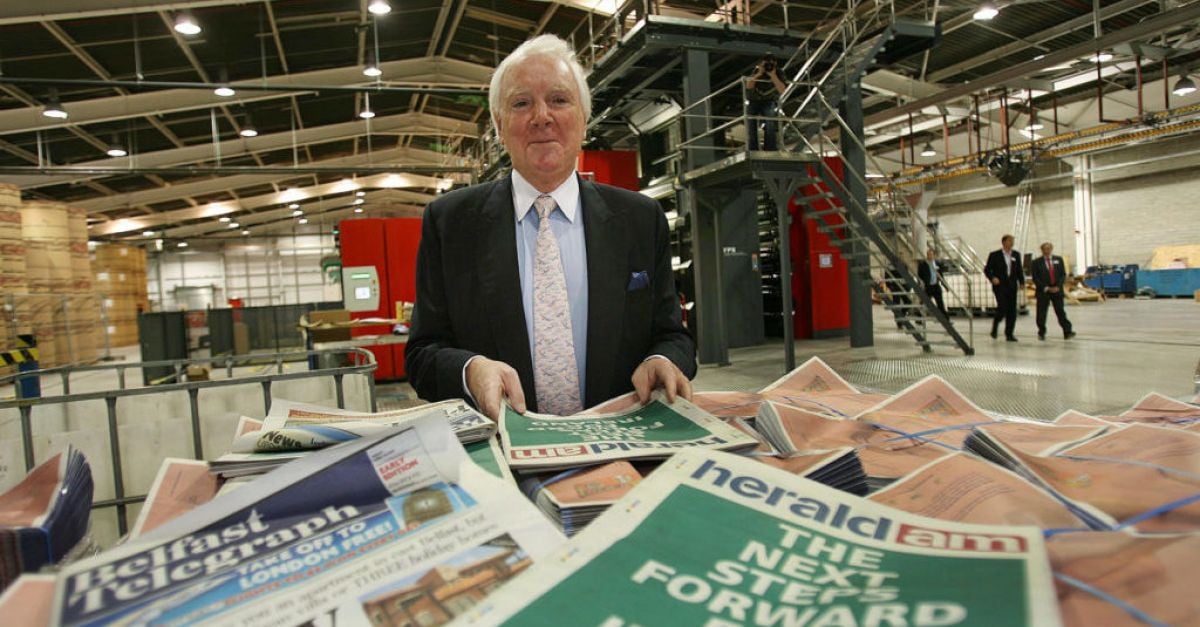The businessman Tony O’Reilly has died at the age of 88.
The former Ireland rugby player has passed away at St. Vincent’s Hospital in Dublin on Saturday after a short illness.
The Glasnevin native became chairman of Heinz and invested in the Independent group.
As The Irish Times reports, losses suffered by the Irish companies contributed to his losing much of his wealth later in life.
It led to him being declared bankrupt in the Bahamas in 2015, aged 79, after AIB – which opposed the bankruptcy decision in the Bahamas – had secured a debt judgment against him for €22.6 million. He emerged from bankruptcy in January of this year.
From Griffith Avenue in Glasnevin, Dublin, O’Reilly was born in May 1936, went to Belvedere College and University College Dublin, qualified as a solicitor, played rugby for Ireland, and enjoyed early success as an Irish business executive before moving to the other side of the Atlantic where he became one of the most highly-paid executives in the United States.
Before he moved to the United States O’Reilly was the head of Bord Bainne, the Irish Dairy Board, and the Irish Sugar Company, with his appointment to the latter being suggested by the then taoiseach, Jack Lynch.
In 1969 he became the head of Heinz in the UK, and two years later moved to Pittsburgh to take on the role of senior vice-president with that corporation.
He remained with Heinz until 1998, becoming chief executive and chairman and overseeing a twelvefold increase in its size.
While running his hugely successful career in the US, he also returned regularly to Ireland to oversee his investments here.
At the height of his career and wealth he was known to some of the most powerful political figures of the age, and had homes in Dublin, Kildare and Cork, as well as in Pittsburgh, the Bahamas, and Deauville, France.
He was a founder of the philanthropic US Ireland Fund, which raised hundreds of millions of euros for the cause of peace and reconciliation in Ireland and helped undermine IRA fundraising efforts in the US.
In 2001, he was knighted by the late Queen Elizabeth for his services to Northern Ireland, the first such award for an Irish citizen and something for which the Government had to grant permission. He preferred thereafter to be known as Sir Anthony.

